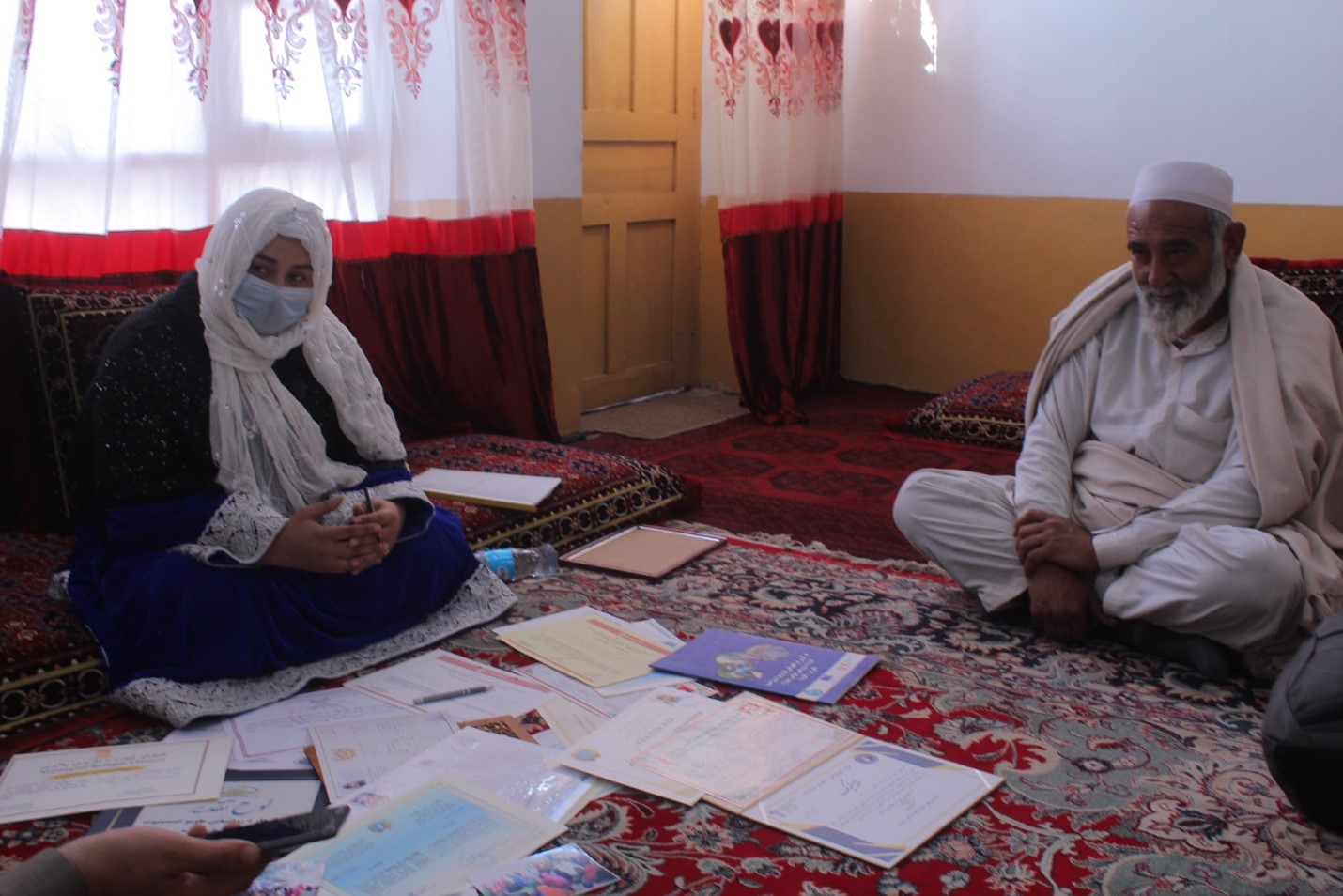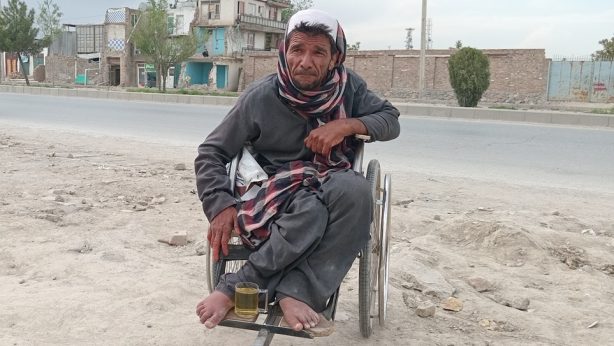Polio victim Wasima Sahar; a hero

Shah Mahmood Shinwarai
Nangarhar, Afghanistan – “I was born about 25 years ago, and when I was just seven months old, the polio virus struck me. Since then, my legs have not functioned properly, causing difficulty in walking and performing daily activities.”
These are the words of Wasima Sahar, a polio victim, who resides with her parents and siblings in the Shiwa district of Nangarhar.
She, who is now twenty-five years old, shares that she has endured many hardships due to her polio-induced disability. She has faced deprivation and experienced negative attitudes from others. Despite this, she has never lost her courage.
She says that despite her disability and the numerous challenges she has faced, she pursued her education and now serves her community as a midwife.
Wasima shared the story of her life’s highs and lows as follows, “In 1999, the year of my birth, my family lived in a refugee camp in the Bara region of Pakhtunkhwa, located across the Durand Line. It was then, at just seven months old, that polio struck me, leading to the paralysis of both my legs.”
 Polio victim Waseema Sahar, seated next to her father in their home © Polio free Afghanistan/ 2024/ Shah Mahmood Shinwari
Polio victim Waseema Sahar, seated next to her father in their home © Polio free Afghanistan/ 2024/ Shah Mahmood Shinwari
She added that polio has had such a significant impact on her legs that her gait is now 40% different from that of a normal person.
She recounts that after emigrating, she was only five years old when she and her family returned to their village. It was then that the challenging days of her life began, as her father forcefully sent her to school alongside her two sisters.
Wasima found it challenging to attend school due to her inability to walk long distances. She recounts that she would leave her house an hour earlier than the other girls, yet she would be the last one to arrive in class.
Wasima endured all this for her father’s sake, but when she reached the 10th grade, her patience reached its limit, and she refused to go to school.
When I refused to go to school, my father told me that I had been crippled by polio and that no one else could help me in life. The only way forward was to study and stand on my own feet. My father’s guidance directed me towards focusing on my future, and as a result, I returned to my studies.
Wasima Sahar found renewed energy through her father’s encouragement and reassurance. Despite her disability and numerous challenges, she completed high school in 1393 Hijri Shamsi, graduated from Dar al-Moʿallamin in 1398 Hijri Shamsi, completed midwifery training in 1400 Hijri Shamsi, and is currently in the final year of her internship program.
She says that in addition to her studies, she has also started working as a volunteer with the polio eradication program in her district and has paved the way for other women to volunteer in the program.
She said, “Since high school, I’ve been leading the girls in our area, and during that time, the Shiwa district lacked female vaccinators. However, in 1396 Hijri Shamsi, in collaboration with the polio program, I assessed a hundred female volunteers, and sixty successfully passed, subsequently becoming vaccinators.”
According to her, she and dozens of her colleagues would go from house to house, educating people about the harms of polio and the benefits of vaccination. She would often share her own experience of having contracted polio but not receiving treatment as an example to emphasize the importance of vaccination. Consequently, she stressed that all children should be vaccinated regularly to protect them from this disease.
Mariah, one of the first female volunteers in Shiwa District, continues to serve as a vaccinator in her district.
She stated that it is thanks to Wasima Sahar’s efforts that many areas of the district now have door-to-door polio vaccination campaigns carried out by female vaccinators.
She asserts that Waseema Sahar is a true hero. Despite her disability, she not only pursued her education, but also fought to prevent polio. Her efforts paved the way for other women to administer vaccinations to children, thereby safeguarding them from the paralyzing disease.
Waseema Sahar’s father, Abdul Majeed, expresses immense joy at the fact that despite her battle with polio, his daughter has successfully completed her studies. Additionally, she has taken fundamental steps toward eradicating this disease.
He expressed that his daughter has provided the opportunity for the employment of dozens of female vaccinators who have been fighting against this dangerous disease for years.
He states that polio is a disease that causes permanent paralysis in children. While the rest of the world, including Islamic countries, has successfully eradicated this disease through vaccination, Afghanistan and Pakistan are still battling it. He believes it is our religious responsibility to safeguard our children from polio.


